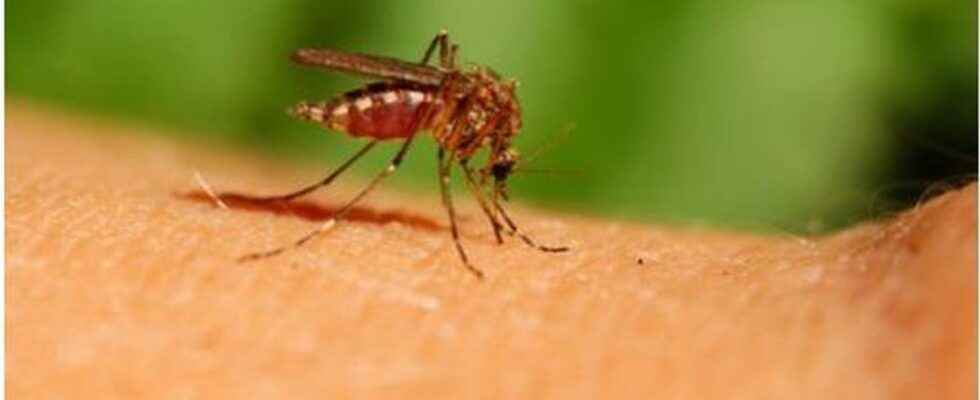Published on
Updated
Reading 3 mins.
It will have escaped no one, except the lucky ones who never get stung. Mosquitoes are having a blast this year. The invasion is everywhere, in town and in the countryside. Review of a mosquito summer.
Rain and heat, their favorite cocktail! With the weather conditions that have befallen France since the beginning of the year, mosquitoes are proliferating briskly. “The particularly rainy spring resulted in the formation of water reservoirs that do not exist in drier weather“, explains entomologist Delphine Rey, of the Rhône-Alpes Interdepartmental Agreement for mosquito control. Wetlands which were then subjected to strong heat, it was enough for the summer of 2013 to be a year of mosquitoes.
The extent of the invasion has been noted by scientists, but it is still too early in the season to quantify it. “We have a large number of species present in France, around thirty. Some proliferate in tree hollows. With the very abundant and continuous rains, the trunks also became waterlogged. This is why we have very numerous species this year which are fewer in previous years.“ These species are particularly numerous in cities, which can be slightly spared the rest of the time.
“However, it should be noted that the population’s tolerance threshold is particularly low with regard to bites of mosquitoes“, underlines our expert. Certainly, these insects invite themselves in greater numbers to our summer evenings, but their bites are neither more painful nor more allergenic as we can sometimes hear. “Certain populations, such as city dwellers, are less often confronted with mosquitoes. They are this year so they have the impression that the mosquitoes are more aggressive, which is not the case“reassures the entomologist.
What about the tiger mosquito?
The amalgam is made especially around the Tiger mosquito, which the population associates with a dangerous species by the reactions due to its bites. It is not so. “This species is monitored because it is a vector of disease, unlike mosquitoes which normally live on French soil“explains Delphine Rey. “If he bites a person with chikungunya or dengue, he will ingest the virus which will migrate into his salivary glands. When it bites the next person, as it releases saliva, it may transmit the disease.“
If cases of chikungunya and dengue fever have indeed been detected in metropolitan France, they concern people who contracted the virus during a trip. “No case of indigenous transmission has been identified“, as asserted by the entomologist. These two diseases are notifiable, so it is easy to identify those affected.
For the time being, the Tiger mosquito is installed in 17 departments, where it is subject to significant surveillance.
Prevent and treat bites
Whatever the species, we are not all housed in the same boat when it comes to bites. “Female mosquitoes are the only ones that bite and they are attracted to certain skins in particular“confirms Delphine Rey. “From a general point of view, they are attracted by organisms that emit a lot of CO2, by odors… People who are more agitated therefore have a greater risk of being bitten.” But female mosquitoes also have a real radar to detect the “richest” blood: “They are able to detect blood that contains certain molecules in large quantities, such as cholesterol for example.”
Rich blood or poor blood, everyone is subject to the same recommendations to avoid being bitten. Repellents can be effective, but must be adapted to external conditions and age. To protect yourself from bites in complete safety, consult our anti-mosquito survival guide or the specific recommendations provided by theRegional Health Agency on which your home depends. Each agency draws up an inventory of the presence of mosquitoes in its sector, including Tiger mosquitoes.
Violaine Badie
Sources:
1- Interview with entomologist Delphine Rey, Rhône-Alpes interdepartmental agreement for mosquito control, August 6, 2013µ 2- Ministry of Health: “Mosquitoes, disease vectors“ (file available online)
